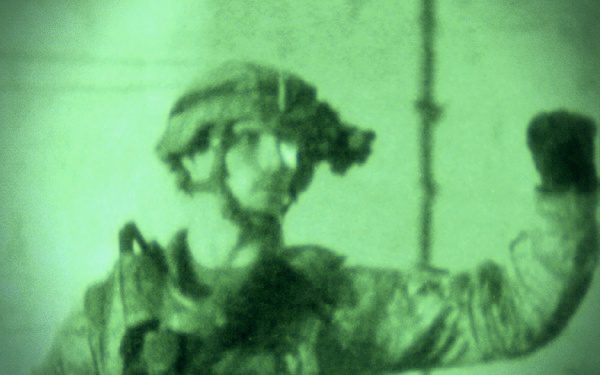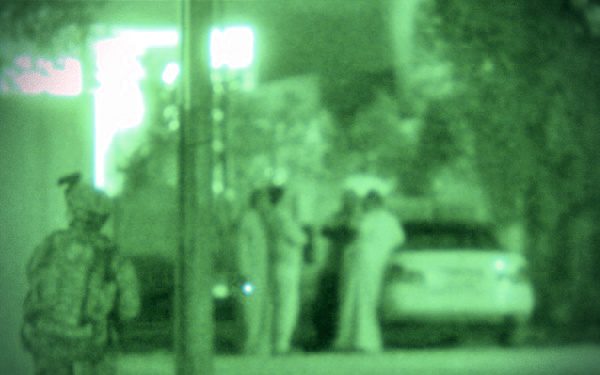Consent search in the military
General rule. If a person voluntarily consents to a search of his person or property under his control, no probable cause or warrant is required. Mil. R. Evid. 314(e).
Persons Who Can Give Consent.
Anyone who exercises actual control over property may grant consent to search that property. Mil. R. Evid. 314(e)(2).
United States v. Reister , 44 M.J. 409 (C.A.A.F. 1996). House sitter had actual authority to consent to search apartment, books and nightstand. United States v. Clow , 26 M.J. 176 (C.M.A. 1988). When police requested consent to search family dwelling, wife consented to search, but husband who was also present refused consent.
The Supreme Court held that consent is not constitutionally valid if one physically present co-tenant grants consent, but another physically present co- tenant refuses consent. Georgia v. Randolph , 547 U.S. 103 (2006). See United States v. Weston , 67 M.J. 390 (C.A.A.F. 2009), where CID removed husband and wife from their home by bringing them to the CID office. Because they were no longer “physically present” at the home, the wife’s consent was valid over her husband’s lack of consent.
(1) But see United States v. King , 604 F.3d 125 (3rd Cir. 2010) cert. denied (holding the Georgia v. Randolph rule applies only to realty, and not personalty). In King, a physically present co-tenant’s consent refusal was not valid against a consenting co-tenant.
Anyone with apparent authority may grant consent.
(1) Illinois v. Rodriguez , 497 U.S. 177 (1990). Girlfriend with key let police into boyfriend’s apartment where drugs were found in plain view. Police may enter private premises without a warrant if they are relying on the consent of a third party that they reasonably, but mistakenly, believe has a common authority over the premises.
(2) United States v. White , 40 M.J. 257 (C.M.A. 1994). Airman who shared off-base apartment with accused had apparent authority to consent to search of accused’s bedroom. The Airman told police that the apartment occupants frequently borrowed personal property from each other and went into each other’s rooms without asking permission.
(3) See also, United States. v. Rader , 65 M.J. 30 (C.A.A.F. 2007). Accused’s roommate had sufficient access to and control over accused’s computer to give valid consent to its search, where the computer was located in roommate’s bedroom, it was not password protected, accused never told roommate not to access his computer or any of its files, accused’s roommates used the computer to play computer games with accused’s consent, and the consenting roommate accessed the computer approximately every two weeks to perform maintenance.
Voluntariness. Consent must be voluntary under the totality of the circumstances. Mil. R. Evid. 314(e)(4);
United States v. Frazier , 34 M.J. 135 (C.M.A. 1992); see United States v. Wallace, 66 M.J. 5 (C.A.A.F. 2008) (adopting the six-factor Murphy test from an Air Force court to determine voluntariness).
Traffic stop. Ohio v. Robinette , 519 U.S. 33 (1996). A request to search a detained motorist’s car following a lawful traffic stop does not require a bright line “you are free to go” warning for subsequent consent to be voluntary. Consent depends on the totality of the circumstances.
Coerced consent is involuntary. But see United States v. Goudy , 32 M.J. 88 (C.M.A. 1991). Accused’s consent was voluntary despite fact that he allegedly took commander’s request to be an implied order.
It’s OK to Trick. United States v. Vassar , 52 M.J. 9 (1999). Accused taken to hospital for head injury and told that a urinalysis was needed for treatment. CAAF held it is permissible to use trickery to obtain consent as long as it does not amount to coercion. Urinalysis was admissible, despite military judge applying wrong standard for resolving questions of fact.
Right to counsel. Reading Article 31 rights is recommended but not required. United States v. Roa , 24 M.J. 297 (C.M.A. 1987). Request for consent after accused asked for lawyer was permissible.
United States v. Burns , 33 M.J. 316 (C.M.A. 1991). Commander’s failure to give Article 31 warnings did not affect voluntariness of consent to urinalysis test.
Scope. Consent may be limited to certain places, property and times. Mil. R. Evid. 314(e)(3). Consent to search computer necessarily implicated consent to seize and remove computer even though standard consent form did not explicitly state that computer could be seized and removed. United States v. Rittenhouse , 62 M.J. 504 (A. Ct.Crim.App. 2005). See United States v. Gallagher , 65 M.J. 601 (N-M. Ct. Crim. App. 2007)
affirmed, 66 M.J. 250 (C.A.A.F. 2008) where the issue is whether the search of the accused’s closed briefcase, located in the garage of accused’s home, did not exceed the scope of his wife’s consent to search the areas of the home over which she had actual or apparent authority.
Withdrawal. Consent may be withdrawn at any time. Mil. R. Evid. 314(e)(3). But see United States v. Roberts , 32 M.J. 681 (A.F.C.M.R. 1991). Search was lawful where accused initially consented, then withdrew consent, and then consented again.
Burden of proof. Consent must be shown by clear and convincing evidence. Mil. R. Evid. 314(e)(5).
Consent and closed containers.
Florida v. Jimeno , 500 U.S. 248 (1991). General consent to search allows police to open closed containers.


